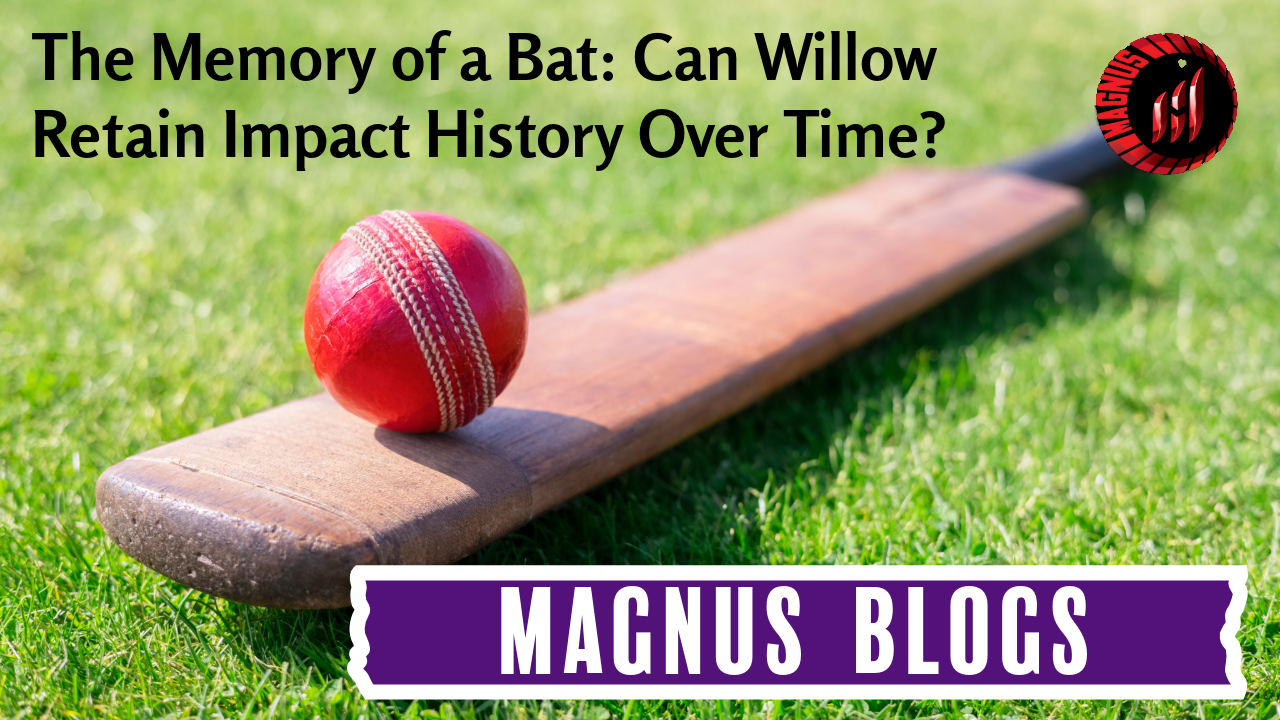Every cricket bat tells a story. From its first net session to a match-winning knock, it absorbs every strike, nick, and thunderous drive. But what if those experiences aren’t just metaphorical? What if a cricket bat particularly its willow blade actually remembers how it’s been used? Could willow physically change over time in response to your playing style? In short: can a cricket bat retain a form of “impact memory”?
This blog explores that question by blending science, craftsmanship, and cricket intuition.
Understanding Willow as a Living Material
Cricket bats are made from willow a lightweight, fibrous wood that’s highly prized for its strength-to-weight ratio and ability to compress and rebound. But willow isn’t lifeless. Even after it’s harvested and pressed, it remains reactive. It flexes. It breathes. It evolves.
This is why no two bats feel exactly the same and why they change the more you use them.
What Happens When a Bat Is Struck?
Every time a cricket ball strikes the bat, it generates intense localized pressure. If the ball hits the sweet spot, the energy is transferred efficiently with minimal shock. But outside this zone near the toe, edges, or shoulder the bat absorbs more vibration and stress.
Over time, repeated impacts compress the wood fibers in those areas. While this compression is what “knocking in” a bat is all about, it continues to happen throughout the life of the bat, particularly in high-contact zones.
This leads to subtle, permanent changes in the bat’s surface and internal structure — almost like muscle memory in a human body.
Signs That a Bat Has a Memory
-
Sweet Spot Optimization
Bats tend to perform better over time in the regions they’re used most. Players often report that their bat “feels more alive” in the sweet spot after weeks or months of use not because of wear, but because the wood has settled into that pressure pattern. -
Dead Spots
Repeated mistimed shots in one area can lead to over-compression or fatigue, dulling the rebound effect. These “dead zones” often occur in the toe or heel if the bat is dragged frequently during drives. -
Vibration Sensitivity
Some bats transmit more vibration as they age, while others seem to “toughen up.” This can be related to how the handle and blade fibers adjust to shock over time. -
Surface Texture
Feel along the blade of a well-used bat, and you’ll find subtle indentations and smoothing where the ball has struck repeatedly. Even after sanding or oiling, these signs persist a kind of memory map of its journey.
How Magnus Bats Are Designed to Respond
At Magnus Cricket, every bat is crafted with careful grain orientation, moisture control, and pressing techniques to ensure the willow performs optimally and adapts intelligently over time. The pressing process is fine-tuned to give the bat a strong start, but leave room for it to evolve with each innings.
Because willow reacts to impact patterns, Magnus bats are designed not just for instant performance, but long-term responsiveness. Over time, they begin to mirror the style of their player becoming sharper, more attuned, and more personalized.
Could Technology Track a Bat’s History?
In the future, it’s possible that smart sensors embedded in the blade could measure where a bat is being hit most, tracking wear patterns, stress points, and rebound zones. This could give players valuable insights:
-
Where they’re making most of their contact
-
How balanced their shot selection is
-
When a bat might be nearing fatigue
While this tech isn’t widespread yet, the concept of a bat “remembering” its use is already happening — just quietly, within the fibers of the willow.
Cricket bat types, Cricket equipment in usa, Cricket equipment store, Cricket gloves, Cricket helmet, Cricket kit bags, Cricket retailers, Durable cricket gloves, English willow bats, Icc approved helmets., Kashmir willow cricket bat, Latest kashmir willow bat
